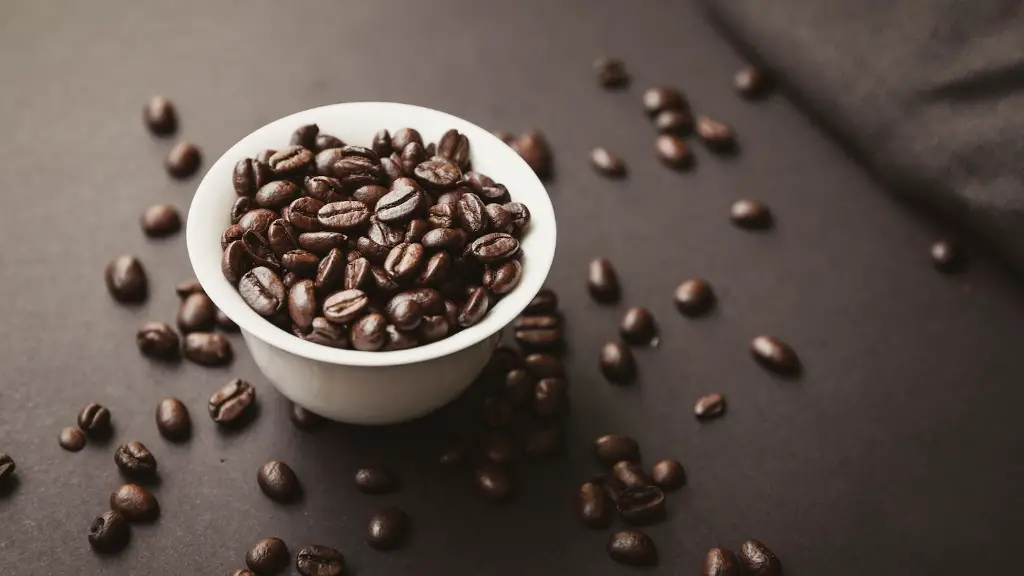Caffeine and Dehydration
Coffee is a popular beverage enjoyed by millions of people around the world and is part of many cultures. While it is likely to provide an energy boost, people often wonder whether coffee or caffeine has any effect on dehydration. Does it dehydrate the body?
The short answer is yes. In fact, caffeine is a diuretic, meaning it encourages the body to lose more water. This means that coffee drinkers could be inadvertently battling dehydration if they over-consume the beverage.
Caffeinated beverages can quickly become dehydrating when consumed in excess. According to London-based registered dietitian Angelique Panagos, “Caffeine stimulates the kidneys to produce more urine, which may lead to your body becoming dehydrated. As your body needs water to function optimally, not drinking enough water can lead to poor overall health.”
Effects of Dehydration on the Body
Dehydration can have a wide range of negative impacts on the body, including headaches, fatigue and even confusion. It is also linked to a decreased level of physical performance, as the body requires water to fuel cells as well as perform regular metabolic functions.
Acute dehydration can lead to hospitalization, as the body requires fluids to replenish electrolytes and maintain normal organ functions. Chronic dehydration can cause damage over time to body organs, and it is the main cause of early deaths due to a lack of fluids in the body.
Given the potentially serious effects of dehydration, it is important that people understand how their coffee intake can lead to this problem if left unchecked. Though coffee may be part of a daily routine for many, it is important to be aware of the advice given by experts about the recommended limits of its consumption.
How Much Caffeine is Safe?
When it comes to the safe amount of caffeine to consume, the answer is not so straightforward. According to the NHS in the UK, adults should not exceed the guideline intake of 400 milligrams of caffeine per day, while pregnant women should not consume more than 200 milligrams of caffeine per day.
On the other hand, Health Canada recommends a slightly lower limit, with no more than three 8-ounce cups of coffee per day, or a maximum of 300 milligrams of caffeine per day. However, this limit can change depending on a person’s weight, age, health and lifestyle.
In any case, it is essential to understand that consuming too much caffeine can lead to dehydration, as it stimulates the production of more urine. Therefore, it is important to consider the amount of coffee consumed each day and spread it out in several servings, preferably combining it with water or other hydrating drinks.
Alternative Beverages
For those looking for a caffeine-free alternative to coffee, several drinks are available in the market. Among the most popular is the lightly-timed tea, which contains at least 30 times less caffeine than coffee, as well as green tea, chamomile and other herbal drinks.
These alternatives can provide some of the same benefits of coffee, such as alertness and concentration without the potential risks of dehydration. Additionally, these drinks provide antioxidants, minerals and vitamins that can improve overall health and well-being.
In any case, it is essential to have an appropriate mix of drinks to prevent dehydration and maintain proper hydration levels. Although coffee is part of many people’s daily routines, it is wise to pay attention to the amount consumed and combine it with other beverages.
Sports Drinks for Hydration
Coffee and other caffeinated beverages are not the only drinks that can dehydrate the body. Sugary and alcoholic beverages should also be avoided, as they decrease the water content and inhibit proper hydration levels.
The best option to prevent and treat dehydration is to drink plenty of fluids. Water is always a great option, but sports drinks or electrolyte drinks may also be good alternatives as they provide extra minerals and nutrition. These drinks are not only ideal for athletes and people engaged in physical activities, but also for those who suffer from dehydration or who wish to improve and maintain their hydration levels.
Conclusion
When it comes to the effects of coffee on the body, it is always important to consider the amount consumed and its effects on health. Caffeine is known to be a diuretic, meaning it encourages dehydration and electrolyte imbalance if taken in excess. Therefore, it is wise to pay attention to the quantity of caffeinated beverages consumed on a daily basis and combine it with other drinks to maintain proper hydration levels.
Effects of Dehydration on Mental Health
Dehydration has consequences beyond the physical effects- it can also have an impact on mental health. The body needs water to function optimally and dehydration is linked to decreased focus and concentration, memory problems, and lower cognitive performance. As dehydration affects the body, it also affects mood, energy levels and the ability to stay organised.
One empirical study on dehydration and cognition stated that “studies of adults… have found that mild dehydration can impair psychomotor performance including vigilance, sustained attention, cognitive reasoning, and psychomotor speed”. Furthermore, some experts have also suggested that potential psychological symptoms associated with dehydration include irritability, confusion and mood changes.
Though the effects of dehydration on mental health are not widely studied, there is a clear connection. Therefore, it is important to remain vigilant about Hydration and consume enough fluids to prevent the effects of dehydration on the mental state.
Nutrition and Hydration
In addition to drinking plenty of fluids, it is also important to pay attention to the types of foods eaten and how they support the body’s hydration. Nutrition and hydration go hand in hand and foods with high water content can help keep the cells hydrated and the body functioning properly.
Examples of foods with high water content include fruits and vegetables like cucumbers, oranges, apples, watermelon and berries. All of these foods have high levels of water and can help keep people hydrated. Additionally, they provide essential minerals and vitamins, making them great snacks to have in between meals.
It is also important to focus on the types of fats consumed. Saturated and trans-fats can be difficult to break down and absorb, leading to a decrease in the amount of water available in the body. On the other hand, unsaturated fats, such as Omega-3s, are much more beneficial for the body and can help keep the cells hydrated.
Hydration and Performance
Apart from mental and physical health, proper hydration is also important for athletic performance. Dehydration can decrease energy levels, prevent proper muscle contraction, and cause fatigue and decreased endurance. As such, proper hydration is essential for athletes to maintain their performance levels and prevent fatigue.
Furthermore, dehydration can also be dangerous as it can lead to heat stroke or other complications. To protect against dehydration, it is important to hydrate before, during, and after physical activities. It is also good practice to drink fluids even when not engaged in strenuous activities, as this will ensure the body is properly hydrated.
In conclusion, proper hydration is essential for good health, both mental and physical. It is important to pay attention to the amount of caffeinated beverages that are consumed, as well as other beverages and foods that could have a negative impact on hydration levels. With awareness, proper hydration can be achieved and help keep the body healthy and well.





